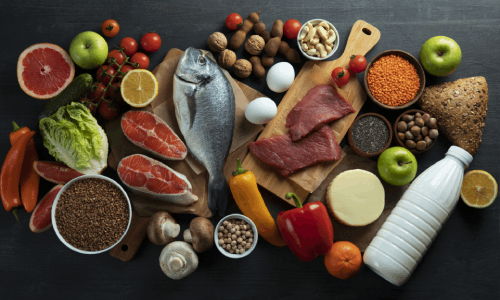Inflammation is a symptom that is generally associated with a variety of health conditions. While the best way to reduce inflammation is to get the root cause treated, it is equally important to keep away from factors that induce inflammation. One of those factors is inflammatory foods.
Three Inflammatory foods you must avoid
Let us dig deeper into the three inflammatory foods that Ayurveda suggests you should avoid to reduce further complications.
- Curd
Despite being a common ingredient, Ayurveda rules out curd for its heating nature. Curd is a Pitta-increasing food resulting in clogging of channels (Srotas) and increased Ama (toxins).
The heaviness and stickiness of curd make it difficult to digest, especially for Kapha-dominant people causing joint stiffness and bloating.
- Black gram
Black gram is also a heavy heating food which can aggravate Kapha and Pitta Dosha, and is not recommended for everyday consumption. Consuming black gram can lead to inflammation in a person with a tendency toward swelling, joint problems and slow digestion.
- Eggplant
Eggplant can cause channel blockages due to its unwholesome and inflammatory properties, so it is not recommended for regular use.
It is heating and creates an imbalance of Doshas; especially in those with a Pitta constitution. As a result, it aggravates joint issues, potentially increasing discomfort for individuals with arthritis or inflammation-related conditions.
An individual who exercises daily and has good Agni (digestive fire) can moderately consume eggpant. However, if you have health conditions, Dosha imbalance, improper lifestyle or impaired digestion, it is better to avoid it.
Inflammation — The Ayurvedic Perspective
Ayurveda believes that the balance of Doshas—Vata, Pitta, and Kapha—is essential for health. The imbalance of any of these Doshas can contribute to inflammation on one or more parts of your body.
In Ayurveda, inflammation or swelling is referred to as “Shotha” or “Shopha.”
The condition is classified into different types, mainly based on their causes as per Charaka Samhita.
त्रयः शोथा भवन्ति वातपित्तश्लेष्मनिमित्ताः, ते पुनर्द्विविधा निजागन्तुभेदेन
There are three kinds of swelling:
- Vataja – caused by the imbalance of Vata Dosha
- Pittaja – caused by the imbalance of Pitta Dosha
- Kaphaja – caused by the imbalance of Kapha Dosha
These can be further categorised into:
- Nija – caused by internal factors, such as vitiation of Doshas
- Agantuja – caused by external factors, such as wounds and fractures
More Inflammatory Foods To Watch Out For
The list of inflammatory foods do not end with the above three. There are more foods that you can avoid for better health.
- Refined sugar
Ayurveda classifies refines sugar as a Tamasic food, which is devoid of good positive life energy, leading to Ama (toxins) accumulation. This drains our energy and clogs the channels in our body.
- Processed foods and fast foods
These foods are heavy to digest, thus leading to the accumulation of Ama in the body and Dosha imbalances. Also, they do nothing to support Agni (digestive fire) and promote inflammation.
- Alcohol and caffeine
Alcohol increases Pitta, causing warmth, redness and swelling, and can put stress on the liver. Caffeine is a stimulant that can irritate both the digestive and nervous systems, leading to dehydration and worsening inflammation.
Inflammation is not a disease, but a symptom. If you have a health condition with inflmmation in the body, consult a qualified Ayurvedic doctor and get the root cause treated. And yes, stay away from anything that can worsen your condition, that including the inflammatory foods listed above.
If you are struggling with any health issues, you can book a consultation with us or send us a message via WhatsApp at +91 79074 89839. We have the best Ayurvedic doctors in Trivandrum who is always glad to helps you . If you have any queries, contact us. You can also visit.
